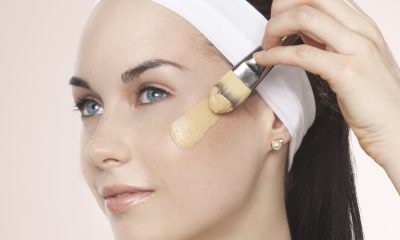Skin types change over a period of time. Younger people tend to have normal skin, but as you age it changes into other types depending on the water content, oil content and sensitivity level.
Water content provides comfort and elasticity to skin. Oil / lipid content provide softness to your skin.
The initial type of skin is genetically determined, that is the type of skin you are born with. However, the health and quality of the skin, later in life largely depends on what you eat and how you take care of your skin. You look great if you have a great skin. To always look great you have to determine your skin type, so that you can take good care of it by the recommended methods and slow down the aging process.
To know your skin type, there is a simple test. Take a clean tissue and wipe the skin of face with it, the moment you get up in the morning. Depending on the oil on the tissue it will be categorized as:
1. Normal
Tissue will not reveal any traces of oil and skin will feel vibrant, elastic and supple. Normal skin is the blessed skin as it is the least problematic skin. Even with a little care, it will look good in your advanced age. Skin is clean, smooth, has a healthy blood circulation and complexion.
2. Dry
Tissue will not reveal any traces of oil in this case also but the skin will feel dry, flaky and tight after wiping it. It will develop wrinkles, fine pores and a sallow tone. It is very prone to aging and becomes sensitive also. To keep it healthy it needs good and regular skin care.
3. Oily
This skin will cause oily stains on most of the tissue. Excess production of sebum not only makes skin oily, but also stretches pores. When the oil mixes with dirt and make up breakouts can also happen.
4. Combination
Tissue test will show oil stains around your oily areas -nose, chin and forehead. It will remain dry under the rest of the area – eyes and cheeks. It will require two different types of treatment, for the oily areas and for the dry areas.
5. Sensitive
Redness, dryness, burning and itching can show up on the sensitive skin. If your skin is sensitive, see what triggers it so that you can avoid them.





















